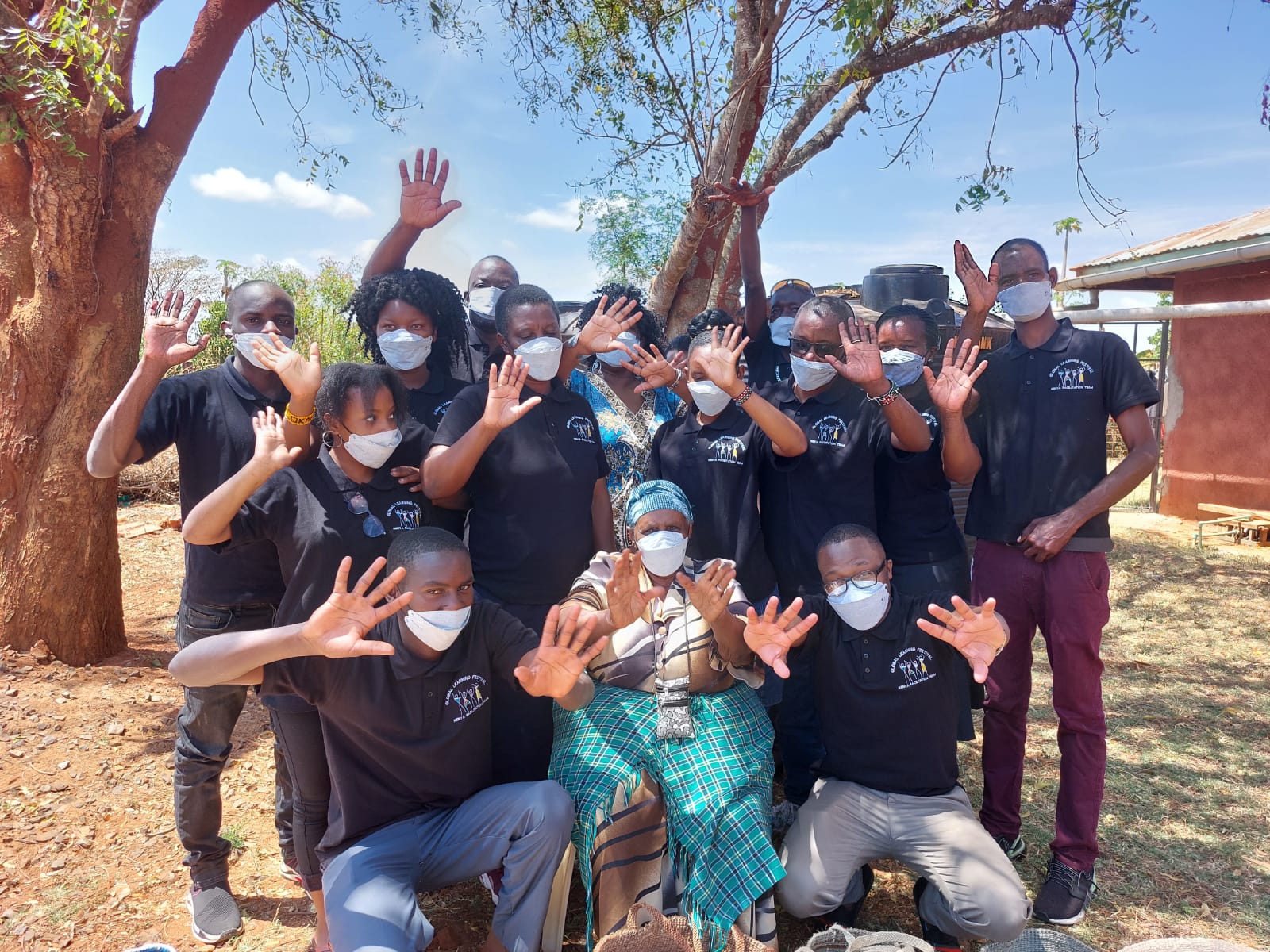The second day of the V-GLF, participants were invited to dive into communities in Kenya in real time as if they were in the homes and villages on the spot, asking questions directly, then synthesising the lessons learnt and experiences, by teams then in plenary.
You will find below the hosts’ quotes in green and the visitors’ quotes in blue, which respond to each other.
The response of Kithituni’s Youth to Covid
The pandemic resulted in the Kithituni church group of youth to engage in cultivating a garden in the church compound, as well as make bricks. They use the revenue to support the elders of the church and comfort them which the elders truly appreciate this. The elders share traditional knowledge which benefits the youth to understand more about who they REALLY ARE. The youth encourage the younger members to join them. They also invite the youth who are not church members. Their effort of “cultivating a heart for the community” is truly transgenerational and takes into consideration members of the wider community. Story summary by Autry Haynes, Guyana.
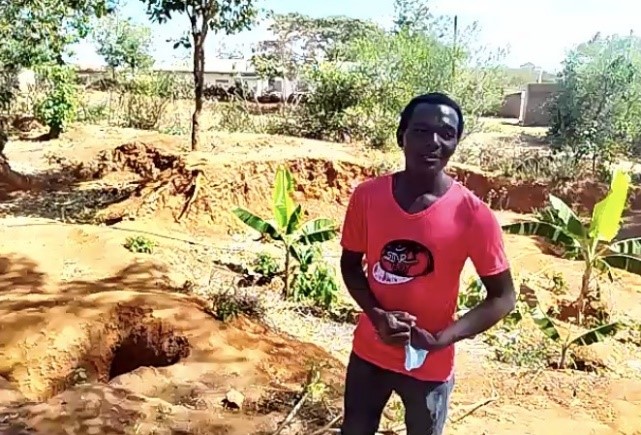
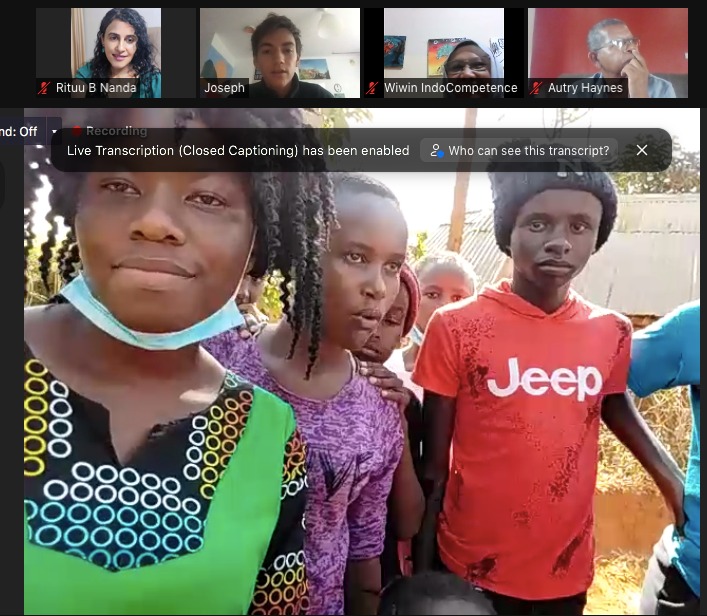
“We cultivate a heart that can benefit the whole community.” Florence, youth leader.
“We got the skills from our parents and teachers. We read from our books and took help from online sources like YouTube and put it into practice.” Member of the youth group.
“What strengths did youth of your country realise during the pandemic?” A question from Kithituni to young Joseph of the V-GLF facilitation team.
“The level of self-awareness is off the charts; they get involved in positive outcomes. Youth are change agents and these youths are doing it well.” Bono Sen, USA.
“Youth have an approach to life, but they need space to connect. I think we need to listen to them—I think this is a SALTy attitude…” MariJo Vasquez, Spain.
Find out more on the Community Life Competence platform:
The response of people with disabilities and their caregivers in Iiani and in Khumbuni
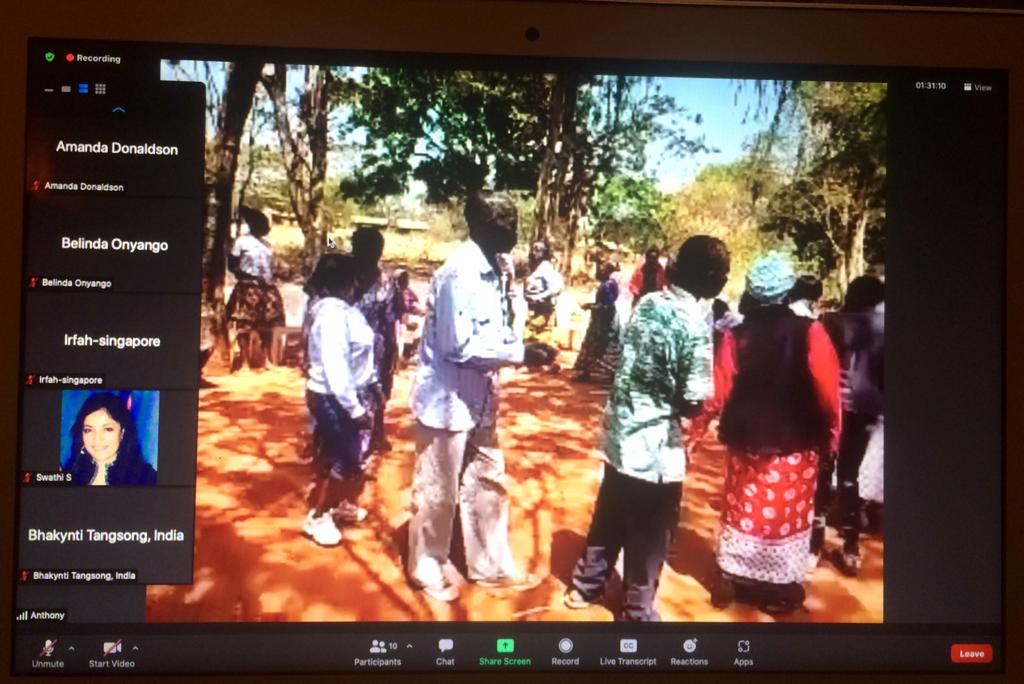
In Iiani and in Khumbuni, people with disabilities no longer live in isolation. We were invited to their gathering.
It was amazing. The scenery, the songs, the dancing, the happiness…
The power: “When we are together, we can do things, even more than those who are strong.”
And the will to share this power to others: “We have challenges in our bodies. We want other people who are suffering elsewhere to hear about our strengths and be strong; like us.”
What we learned is: “Doing what we can do, being proactive, is the way to adapt.”
And that what the group brings to people sustains the group: happiness, conversations, prayers, help, money…
“Such shared learning opportunities (within a stimulating, trusting environment), remind us about embracing and celebrating ourselves. We matter—and by working together using the SALT ways of thinking, ‘of being’, we can bring positive change, however small this might seem.” Lamiya Samad, United Kingdom.
This community local response resonated with Kainat Khurshid’s experience with the Sujaag HIV Collective Action for De-stigmatisation of People Living with HIV in the town of Ratodero in Pakistan:
“We are actively working on stigma. The way caregivers said that they took their children to other houses and showed that they are a part of the community and that it’s okay for them to participate in communal activities, was reassuring to me. I can take this back to my community and tell them that, okay, others are doing the same: let’s continue our efforts. And that was really beautiful.”
Love and respect
“I am comfortably living even though I am disabled because my family treats me well and respects me! Especially my brother who pushed and helped me to go to school. Disability is not Inability!” Mary.
“Everything works well when love and respect is present!” Anonymous feedback.
Self-acceptance
“The positive acceptance of the situation of their disabled sister and daughter allows the family of Caro not to hide her because of her disability and contributes to the fight against discrimination.” Alain Kolié Ouo-ouo, Guinea.
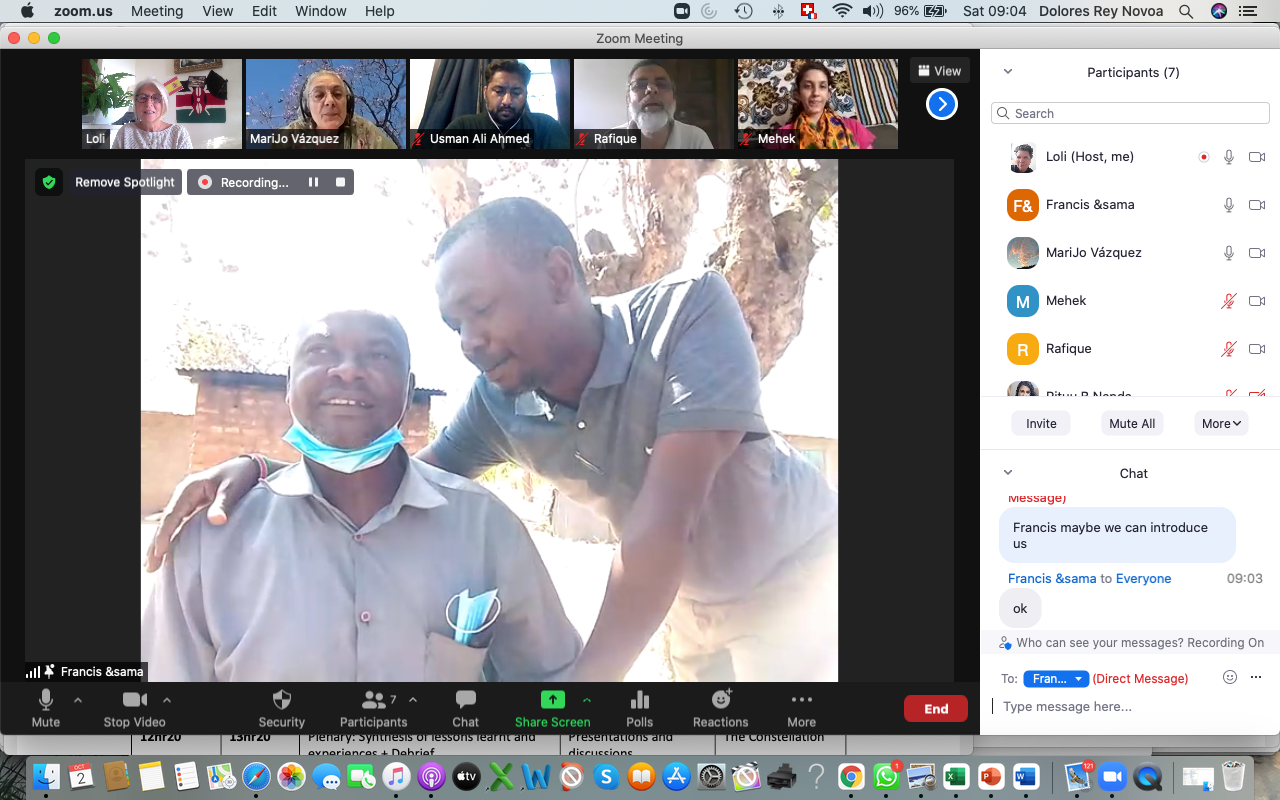
“Disability is not a problem if you accept it. The sky is the limit!” Richard Muanyo who manages a farm.
“I feel energized enough to keep me going till the next GLF! Pepped me enough to visit the Agricultural University. And I got hundreds of hybrid saplings of various fruit trees and God willing have started planting them myself, and I am loving the labour so much. Insha Allah, hope to eat from what my hands have planted and grown! Hats off to the transfer from Myuavano’s Farm in faraway Kenya to Kerala, India.” M.E. Rafique, India.
Dorcus Beads: Supporting each other and accepting each other as a way of living
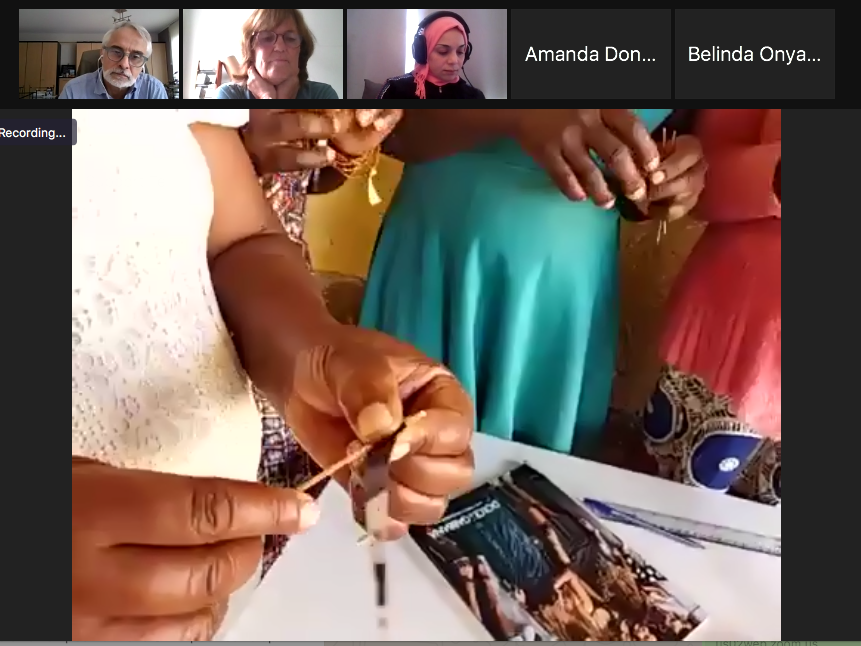
“The business of Dorcus Beads has lasted for more than 10 years because it is more than a money-making project. The ladies of Dorcus are challenging us to look at business beyond income. The business supports their relationship with one another and is an avenue of expressing their faith.” Myrna Maglahus, The Philippines
“A woman sewed clothes for widows to empower ladies to support their families. This is exactly what this group is doing in their communities. They are living that purpose of empowering each other.” Amanda Donaldson, USA.
“In a SALT visit of the Dorcus Beads Community-Based Organization (CBO) in Kenya, Christine showed us how she was able to become a businesswoman with a real “business model”, with the large production of masks during the pandemic. This happened when the Government proclaimed the wearing of masks mandatory (e.g., public transport). She started from nothing and had a difficult time producing the first masks but then became very skilled at it and spent hours sitting and sewing them at home, as we saw in a live demonstration.
She could respond well to the pandemic, make herself useful in the public health response in her community, as well as make a living off it for her family. Such an initiative is a good example of The Constellation members being able to be creative and responsive to the community or national needs, even during the COVID-19 pandemic.” Cyril Pervilhac, France.
“People in communities do not name SALT, they live it. Supporting each other and accepting each other is their way of living.” Claire Campbell, Australia.
Thank you to the Kenya facilitation team!
